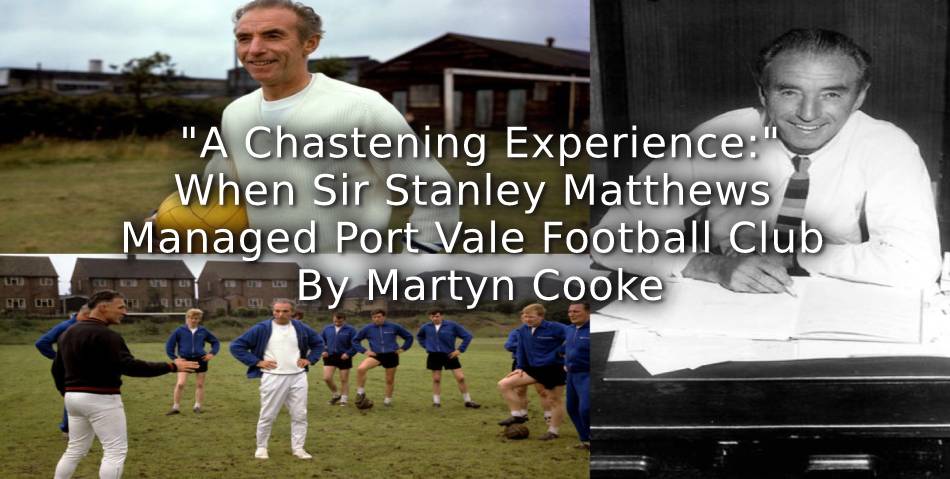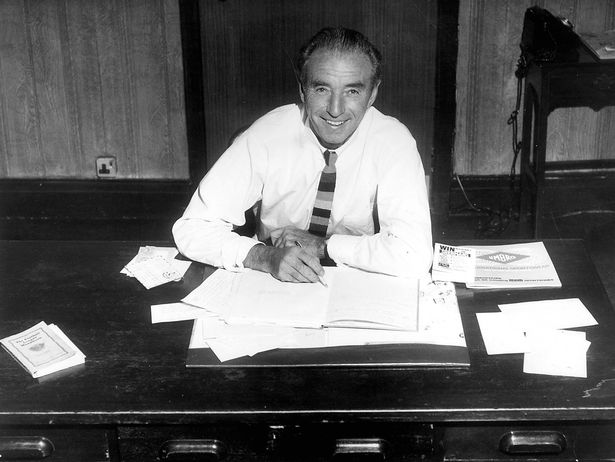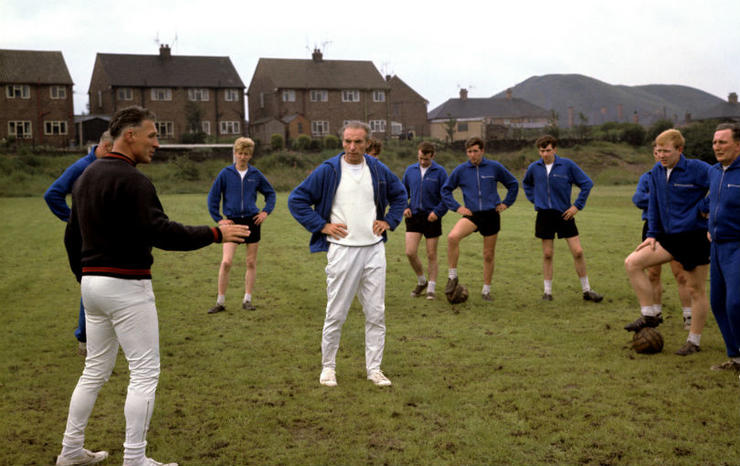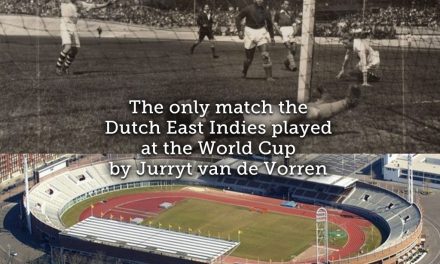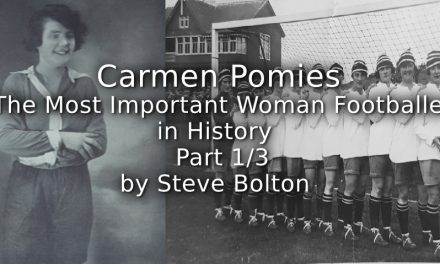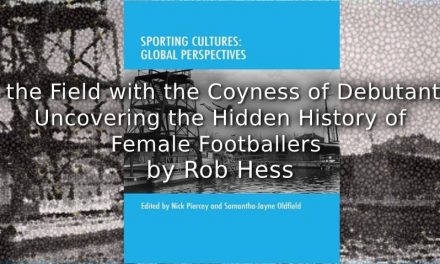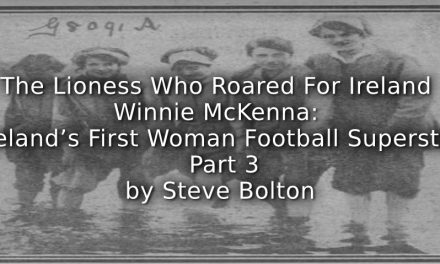Sir Stanley Matthews is widely regarded as having been one of the greatest association football players of his generation, if not of all time, having embarked on a career that stretched across four decades which saw him play until the age of fifty. The ‘Wizard of the Dribble’ was famed for his ball mastery, skill and speed – his inclusion on a team sheet would attract thousands of extra spectators to matches – but he was also seen as one of the true gentlemen of British football.
Matthews started and ended his playing career at Stoke City and accumulated over 300 appearances for the club in the Football League over a combined nineteen years. His accomplishments are well documented and in 2017 he was voted as one of Stoke City’s ‘greatest’ players as part of the club’s 150th anniversary celebrations. Having grown up in Stoke-on-Trent, Matthews was a local hero and more than 100,000 people lined the streets of the city to pay tribute following his death in February 2000.
However, a much more unfamiliar narrative regarding Matthews is his brief spell in management with Port Vale, Stoke City’s local rivals, during the late 1960s. His time at the club was unsuccessful, turbulent and concluded with Fourth Division outfit being excluded from the Football League for financial irregularities.
‘There is only one way Vale can get back to the top …’
Port Vale were facing a spiralling crisis both on and off the pitch by the summer of 1965. The team had just been relegated to the Fourth Division of the Football League, after an underwhelming campaign which had concluded with the team finishing five points adrift of safety, whilst the club were facing financially difficulties having made a loss of over £15,000 during the previous year. Jackie Mudie had been appointed as player-manager in February 1865 and was retained for the forthcoming season but faced the unenviable prospect of losing his best players over the summer and having little money to rebuild a competitive squad.
However, the gloom around the club was lifted in July 1965 when it was suddenly revealed that Stanley Matthews had agreed to become general manager. The news that one of the most prestigious figures in British football would be taking up a position at Fourth Division side Port Vale came as a startling revelation, but one that initially re-energised the club. He had retired from playing only a few months previously and later commented that ‘after the career I had enjoyed, I wanted to give something back to the game that had given so very much to me’. The former England international agreed to work unpaid, only claiming expenses, and without a formal contract.
Matthews had been a Port Vale supporter when he had been a youngster whilst he was also good friends with Mudie, whom he had played alongside at both Blackpool and Stoke City. Together the pair developed a new long-term strategy for the future of the club that revolved around signing young players from across Britain and identifying talented schoolboys. It was hoped that the club could produce a conveyor belt of talent that would form the basis of the team whilst any outstanding individuals could be sold off at a large profit to help alleviate the ongoing financial situation.
After his appointment, Matthews told the local press that ‘there is only one way Vale can get back to the top and that is by attracting and nurturing young footballers’ although he added ‘the policy will need patience’. He immediately embarked on the task of identifying potential players and he scoured North Staffordshire and South Cheshire, setting up a series of trials which were attended by 700 local schoolboys, whilst also concentrating on what he described as the ‘football hotbeds’ of the North East and Scotland.
The opening day of the 1965/66 season saw Port Vale beat Colchester United in front of a bumper crowd of over 11,000 spectators, but this was followed by two consecutive defeats which set the tone for the remainder of the campaign. The team consisted primarily of youngsters and, perhaps unsurprisingly considering the lack of experience, they were inconsistent in terms of the quality of their performances whilst results were definitively mixed. The Matthews effect, which had drawn in a bumper crowd for the first game of the season, quickly wore off and attendances began to drop rapidly. The team finished the campaign in 19th position and there was only a slight improvement the following season which saw them finish 13th.
In May 1867, Mudie resigned as player-manager citing ‘personal reasons’. It was later suggested that the Port Vale board had been unwilling to provide him with the time and patience to enable the youth policy that had been implemented to come to fruition – the present was much more important to a club facing financial difficulties than a long-term vision.
- Sir Stanley Matthews, Port Vale’s new general manager
‘For the first time in my life, I used my name and reputation for gain …’
Stanley Matthews agreed to succeed Jackie Mudie as first team manager of Port Vale and was given complete managerial control as he led the club into the 1967/68 season. He persisted with the policy of signing and nurturing young players, although the club continued to be restricted by financial difficulties, and despite some positive signs on the pitch the campaign would ultimately end in controversy.
In November 1867, with the team seemingly on course for a mid-table finish, the Football League announced that an examination of Port Vale’s accounts had revealed financial irregularities and alleged breaches of rules pertaining to the payment of players. The investigation left a black cloud hanging over the club but in March 1868 the situation came to a head. It was announced that Port Vale had breached six financial regulations, which revolved around paying schoolboys a weekly wage and the illegal payment of signing on fees and bonuses to first team players, and that the club would be fined £4,000 and excluded from the Football League at the end of the season.
Whilst club officials made no attempt to deny the charges there was widespread shock at the severity of the punishment handed out. The Staffordshire Sentinel commented that ‘there is a wide-spread opinion among football supporters that the penalties are out of proportion to the seriousness of the offences’ whilst the Port Vale vice-chairman Arthur McPherson stated ‘we did not think that they would be as severe as this’.
Despite the findings the club were still required to fulfil their remaining fixtures leaving Matthews with the unenviable task of playing out the final months of the campaign with a shocked and demotivated squad. Performances and results quickly deteriorated with the team eventually finishing the campaign in 18th position.
As the summer arrived Port Vale applied for re-election to the Football League and embarked on an extensive campaign to garner support among other clubs – who would ultimately be the ones to decide whether to allow them to re-join. They found an unlikely ally in the form of Stoke City chairman Albert Henshall who provided his backing whilst Matthews sought to use his personal reputation to aid the club’s efforts. He later commented that ‘for the first time in my life, I used my name and reputation for gain. … I contacted the chairman of every club in the Football league, imploring them to vote for Port Vale’.
Ultimately, the campaign was a success and Port Vale were readmitted to the Football League for the 1868/69 season, retaining their place in the Fourth Division. However, there would have to be some collateral damage. Other Football League clubs were partly convinced to vote for Port Vale due to the promise of considerable administrative changes throughout the Staffordshire club – there would be a new chairman, board of directors, secretary and manager appointed before the start of the new season – whilst the football authorities would conduct regular inspections of their accounts.
‘I turned my back on management in English football forever …’
Whilst Port Vale may have retained their place in the Football League, Stanley Matthews would be one of the key figures within the club who had to partly shoulder the blame for relative chaos of the previous six months. He stepped down as manager in May 1868 but agreed to continue his efforts to identify young, talented players in a scouting role despite the fact that he was still owed £9,000 in unpaid wages. Matthews had been reluctant to draw his wage after being appointed as first team manager due to the club’s financial difficulties and it was not until December 1970 that a settlement was reached where he was paid £3,000 with the remainder being written off.
Despite having experienced one of the most prestigious and successful playing careers in the history of British football, Matthews found that the managerial and administrative side of the game was much less chivalrous. Roy Sproson, who made over 700 appearances for Port Vale and later managed the club, alluded to the fact that Matthews had ‘trusted people who should never have been trusted and people took advantage of him’. Within a few months of him stepping down as first team manager, Matthews found that his name had been removed from his office door and he departed the club quietly with none of the fanfare that had marked his arrival three years earlier.
It is a long-established adage that great players do not necessarily make great managers, but it is difficult to gauge whether Matthews had the makings of a successful manager. Was he the right man but in the wrong place at the wrong time? His long-term vision for Port Vale was promising, yet he stepped into a club short of money with his reign inadvertently ended by the Football League’s investigation into the club’s books.
Perhaps he would have had greater success at his next club? Alas, we will never know. Matthews later commented that ‘the whole incident left a sour taste in my mouth and I turned my back on management in English football forever … my time with Port Vale had ended with a chastening experience’.
Article © Martyn Cooke
Further information and useful sources
Kent, J. (1990) The Valiants’ Years: The Story of Port Vale. Staffordshire: Witan Books.
Kent, J. (1996) Port Vale Personalities: A Biographical Dictionary of Players, Officials and Supporters. Staffordshire: Witan Books.
Matthews, S. (2000) Stanley Matthews – The Way it Was: My Autobiography. London: Headline.
Staffordshire Sentinel. (2004) Port Vale FC: The Valiants in the 50s and 60s. Stoke-on-Trent: Staffordshire Sentinel Newspapers.

